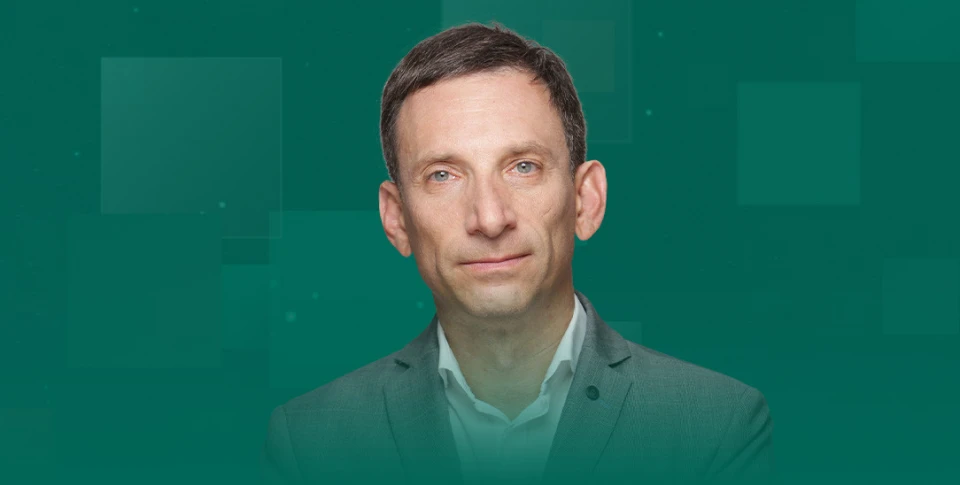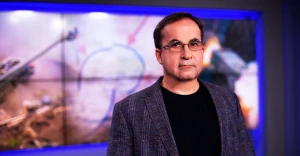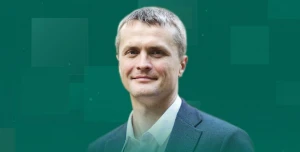
Guarantees of Ukraine's disintegration: key takeaways from Lavrov's press conference
Russia’s Foreign Minister Sergey Lavrov, speaking at a year-end press conference on the country’s 2024 foreign policy, revisited the topic of potential negotiations to end the Russia-Ukraine war, including discussions on possible security guarantees for Ukraine
However, it should not be assumed that Lavrov was speaking about any genuine or realistic security guarantees. The Russian Foreign Minister merely emphasized that his country is ready to discuss real security guarantees for the country called Ukraine - for the part of it that has not yet "self-determined," since Crimea, Donbas, and Novorossiya, as Lavrov stated, have already done so.
This bureaucratic language needs decoding to clarify what the head of Russia's foreign ministry actually meant. First, as we can see, Russia is not at all willing to discuss the issue of occupied territories. From Lavrov's perspective, as well as that of other Russian officials, the fact that Crimea, Donetsk, Luhansk, Kherson, and Zaporizhzhia regions are part of the Russian Federation is not even up for discussion. It is worth noting that during the same press conference, Sergey Lavrov spoke approvingly of the position of U.S. President-elect Donald Trump, who, according to the minister, recognizes "realities on the ground."
Incidentally, it is worth recalling that Russian politicians consistently emphasize the need to recognize these "realities" as an essential precondition for negotiations to suspend or end the Russia-Ukraine war. As for the "part that has not self-determined" and the "state called Ukraine," this is effectively a proposal to divide Ukraine. The "part that has not self-determined" refers to the territories in the east and south of our country that are not occupied by Russian forces.
"It is worth recalling that the list of these territories was explicitly mentioned in the so-called Crimean speech by Russian President Vladimir Putin during a session of the Federal Assembly of the Russian Federation in 2014, when the decision was made regarding the first annexation - the annexation of Crimea and Sevastopol."
At that time, Putin referred to the territories in the east and south of our country, the so-called Novorossiya, as a Bolshevik "gift" to Ukraine, openly expressing his territorial claims. Now, nearly 11 years after that speech, Sergey Lavrov is delivering the same messages, which, incidentally, indicates that Putin's conditions, declared at the start of the large-scale Russia-Ukraine war, have not changed.
In his address to Russians on the night of February 23–24, 2022, Putin also spoke of the need for the so-called self-determination of Ukraine's peoples. As could be understood, the puppet government he intended to establish in Kyiv following the occupation of the Ukrainian capital was supposed to enable him to hold so-called referendums in all regions of Ukraine he sought to annex to the Russian Federation. Thus, fundamentally, these are not security guarantees for Ukraine but guarantees of Ukraine's disintegration and the annexation of a significant part of its territory to the Russian Federation.
"As for the portion that would remain under the control of the Ukrainian government, Lavrov, as I understand, is ready to offer so-called security guarantees. However, this would, of course, be conditional on that part of the territory being demilitarized and proclaiming a permanent neutral status. But this is already a matter for negotiations that would need to take place."
Currently, from the perspective of the Russian Foreign Minister himself, it is not worth discussing specifics about these negotiations. Lavrov emphasized that the team of newly elected U.S. President Donald Trump has not made any proposals regarding a meeting with Vladimir Putin. Trump himself, as is known, stated that such a meeting could be organized after his inauguration as President of the United States. Meanwhile, Congressman Mike Waltz, nominated by Trump for the position of National Security Advisor, mentioned that a meeting with the Russian president or at least a phone call with Vladimir Putin should take place in the coming weeks or days, again after Trump’s inauguration as President of the United States.
Lavrov also spoke on other topics sensitive to U.S.-Russia relations and, naturally, to the ongoing Russo-Ukrainian war. He mentioned the comprehensive partnership agreement between Russia and Iran, set to be signed this Friday. The timing precedes Donald Trump’s inauguration and mirrors a similar document signed between Russian President Vladimir Putin and the head of North Korea's Workers' Party, Kim Jong Un. That agreement currently enables Pyongyang to support Russia in the war against Ukraine, not only with equipment but also with its own military personnel.
Lavrov, of course, claims that the agreement between Russia and Iran will not target third countries. However, the content of the document will undoubtedly carry significant weight regarding the future intentions of the U.S. administration in the Middle East.
"And, naturally, another country sensitive to the United States is the People's Republic of China. Lavrov described the relationship between Russia and China as one of the primary stabilizing factors in international affairs."
This once again underscores that all notions of somehow detaching Russia from China, even with concessions on the post-Soviet space and in the Russo-Ukrainian war, to ease U.S. competition with China, are naïve fantasies of those who hold such views.
Strengthening ties between Moscow and Beijing is practically inevitable, at least from the perspective of Russia's political leadership. In my view, if anyone can be separated from anyone, it’s more likely China from Russia than Russia from China. This is because Beijing has its own economic interests and must consider their significance in its relations with the United States. Meanwhile, Russia is becoming increasingly economically dependent on the People’s Republic of China.
Ultimately, it is evident that the U.S. administration has no viable offer to provide Putin with what the Russian president wants most: control over Ukraine. Sergey Lavrov does not hide this as Moscow's primary objective. Moreover, his colleague on the Russian Federation's Security Council, former secretary and one of Putin's closest allies, Nikolai Patrushev, openly states that by 2025, Ukraine will no longer exist. Essentially, Patrushev's blunt remarks carry far more weight than Lavrov's rhetoric.
About the author. Vitaly Portnikov, journalist, laureate of the Shevchenko National Prize of Ukraine.
The editors don't always share the opinions expressed by the blog authors.
- News











































